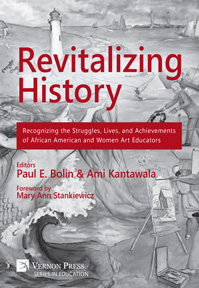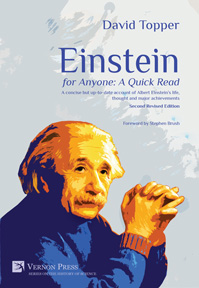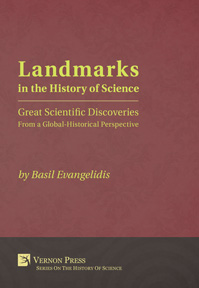Search
Browse
by Publication status
by Subject
Anthropology (26) Art (122) Business and Finance (25) Cognitive Science and Psychology (53) Communication and Journalism (43) Economics (61) Education (65) History (145) Human Geography (22) Interdisciplinary (40) Language and Linguistics (128) Law (16) Music Studies (18) Philosophy (153) Political Science and International Relations (99) Sociology (295) Statistics and Quantitative Methods (19)by Series
Series in Literary Studies (62) Series in Philosophy (58) Series in Education (49) Series in Sociology (42) Series in World History (31) Series in Politics (30) Bridging Languages and Scholarship (27) Series in Language and Linguistics (25) Cognitive Science and Psychology (20) Series in Philosophy of Religion (20) Series in American History (19) Series in Art (19) Critical Perspectives on Social Science (16) Series in Cinema and Culture (16) Curating and Interpreting Culture (15) Series on the History of Art (14) Series in Anthropology (13) Series in Critical Media Studies (13) Economics (13) Series in Business and Finance (12) Series in Music (12) Series in Communication (9) Series in Performing Arts (9) Philosophy of Personalism (8) Series in Law (8) Series in Economic Methodology (7) Series on Climate Change and Society (7) Classics in Economics (6) Series in Economic Development (6) Women's Studies (6) Philosophy of Forgiveness (5) Series in Built Environment (5) Series in Economic History (5) Series in Philosophy of Science (4) Series in Social Equality and Justice (4) Series on the History of Science (4) Serie en Sociología (3) Series in Contemporary History (3) Series in Creative Writing Studies (3) Series in Design (3) The Interdisciplinary Built Environment (3) Serie En Estudios Literarios (2) Series in Heritage Studies (2) Series in Innovation Studies (2) Serie en Ciencias Políticas (1) Serie en Comunicación y Medios (1) Serie en Entorno Construido (1) Serie en Estudios Culturales (1) Serie en Filosofía (1) Serie en Filosofía de la Ciencia (1) Serie en Música (1) Series in Classical Studies (1) Series in Economics of Technological Change (1) Series in Philosophy of Race (1) Series in Urban Studies (1)by Language
English Spanishby Author
Browsing with filters

Revitalizing History
Recognizing the Struggles, Lives, and Achievements of African American and Women Art Educators
Edited by
Ami Kantawala, Teachers College, Columbia University
and Paul Bolin, University of Texas at Austin
Availability: In stock
210pp. [Color] ¦ $70 £58 €65
Historical inquiry forms the foundation for much research undertaken in art education. While traversing paths of historical investigation in this field we may discover undocumented moments and overlooked or hidden individuals, as well as encounter challenging ideas in need of exploration and critique. In doing so, history is approached from multiple and, at times, vitally diverse perspectives. Our hope is that the conversations generated through this text will continue to strengthen and encourage more interest in histories of art education, but also more sophisticated and innovative approaches to historical research in this field. The overarching objective of the text is to recognize the historical role that many overlooked individuals—particularly African Americans and women—have played in the field of art education, and acknowledge the importance of history and historical research in this digital age. This text opens up possibilities of faculty collaborations across programs interested in history and historical research on a local, national, and international level. By assembling the work of various scholars from across the United States, this text is intended to elicit rich conversations about history that would be otherwise beyond what is provided in general art education textbooks.
Paris, a Concise Musical History
May 2017 / ISBN: 978-1-62273-255-5Availability: In stock
384pp. ¦ $59 £48 €55
Paris, the City of Light, is one of the most romantic cities in the world. The millions of visitors which flock to the French capital every year follow in the footsteps of countless artists, writers and composers who for centuries have been drawn to this magnificent city. Some composers, Chopin and Rossini among them, found success and contentment, and remained in Paris for the rest of their lives. But for others, Paris brought nothing but disappointment and disillusionment. Mozart, who came to Paris as a 22-year-old seeking a permanent position, was so bitter about the cavalier manner in which he was treated that he professed an aversion to all things French until the end of his days. Wagner was so upset by his treatment here that he once described Paris as "a pit into which the spirit of the nation has subsided." And yet he was drawn back to the city time and again. This book charts the musical history of Paris. It discusses the composer and musicians, both French and foreign, who were drawn here and the impact they made on the world of music, on this great city, and vice versa. It includes a wealth of biographical details, including where the artists lived and, where relevant, where they died and are buried. It also draws from and points to suitable scholarly literature, making it an accessible introduction to students of the musical history of Paris. The book also describes another feature which, if it did not enrich, most certainly enlivened Parisian musical life: The full-scale musical riot. The most notorious of these took place at the Theatre des Champs Elysées in 1913 at the premiere of Stravinsky’s ballet Le sacre du printemps. Less physical, but no less vociferous, was the reception accorded to Wagner’s Tannhäuser at the Opéra in 1860. Other composers who incurred the displeasure of Parisian audiences included Satie, Varese and Xenakis. These riots were not half-hearted affairs; police involvement was required and hospital casualty departments were kept busy. There are also chapters which discuss the musical history of the many theatres of Paris and the churches which played such an important part in the city’s musical past. The text is clear and accessible in order to appeal to both students and the general reader.
Einstein for Anyone: A Quick Read
A concise but up-to-date account of Albert Einstein's life, thought and major achievements
March 2017 / ISBN: 978-1-62273-257-9Availability: In stock
128pp. ¦ $30 £20 €28
This book seeks to fill a gap: the need for a very short book on Albert Einstein that gives a brief but up-to-date story of his life and thoughts, with a short and simple explanation of what he contributed to 20th century physics. Here is the compact story of this famous scientist, from the smiling contrarian in his grade school picture to the nonconformist adult who refused to groom his hair. There is a chapter on his habitually thorny relationships with women and close relatives: his first love, his two wives, his parents and his children – none of which was a painless union. The birth of an illegitimate daughter, the estrangement of his sons after the divorce from his first wife, his ever controlling mother – all had a profound psychological effect on Einstein’s personality. Another chapter focuses on the young Jew struggling with his self-identify, who in adulthood was unwaveringly committed to social justice and democratic principles that he believed were rooted in Jewish ethical values. It started with his early flirtation with Orthodox Judaism, only to be vehemently rejected later when he became a science-obsessed teenager. His exposure to latent and overt anti-Semitism when he moved to Germany in 1914 led to his subsequent espousal (with misgivings) of the Zionist movement. When he moved to the USA in 1933 fleeing Nazi Germany, he was confronted with the endemic racism against African-Americans, an issue he spoke-out boldly against, as a supporter of the burgeoning civil rights movement. This work ignited the ire of FBI Director J. Edgar Hoover, who had already opened a file on Einstein in 1932, because of his pacifist activities in Germany. When he moved to America, Hoover suspected him of being a Communist spy. Finally, there is the scientist who expressed his ideals through his radical ideas about the physical world, as he reworked our conceptions of space, time, and motion. The result was a new cosmic model of the universe that is still being developed further today. His commitment to an ordered and predictable universe was ultimately expressed in his final (but still unfulfilled) quest for a theory that unifies the forces of nature, what he called his unified field theory. Some non-scientific topics, not often found in biographies of Einstein (even the hefty tomes): • A serious consideration of his extensive ruminations on matters of politics and society. • His social efforts for the plight of Eastern European Jews after World War I, and the later work for refugees from Nazi Germany trying to immigrate to the USA. • A look at his close friendship with the African-American singer Paul Robeson, and others committed to civil rights. • The story of his acceptance and reception of an honorary degree from Lincoln University in May, 1946, the first all-black college in America. • His confrontation with the anti-Communist movement during the McCarthy era (especially Hoover and the FBI). • The key role the ideas of the 17th century Jewish philosopher Spinoza had on both Einstein’s theology and his scientific thinking. Some of the highlights of Einstein’s scientific pursuits found in this book: • A clear explanation, with helpful diagrams, of Einstein’s famous “thought experiments.” • The importance for Einstein of the interplay between theory and experiment in physics, as well as his practical side with real world technology. • His vacillation with and ultimate embrace of the role of abstract mathematics in his theory of relativity. • A clear explanation of the differences between Newton’s and Einstein’s ideas about gravity. • A non-technical account of the difference between Einstein’s and Bohr’s interpretations of quantum physics. • Perhaps the first elucidation for the layperson of Einstein’s obsession with and eventual abandonment of what he called Mach’s Principle. • How Einstein’s stubbornness (or chutzpah) both helped and hindered his endeavors in science. • A consideration of why he alone endlessly pursued his quest for a unified field theory. • The little known story of the Einstein-deHaas Effect. • The contrast in his later years between the public’s perception of Einstein the sage and icon of science with that of his fellow scientists, who generally saw him as an old fool chasing a pipedream. • Finally, the most recent confirmation of another of his predictions: the detection of gravitational waves, announced in February 2016.
Showing and Telling: Film heritage institutes and their performance of public accountability
Nico de Klerk, Ludwig Boltzmann Institute for History and Society, Austria
Availability: In stock
328pp. ¦ $50 £38 €45
Showing and Telling is the first academic work to explore how publicly funded film heritage institutes account for their mandate in their public activities. It does that by inspecting and evaluating public presentations and visitor information about these presentations. The research was done by juxtaposing two complementary approaches. The first is grounded in the author’s experience as a collection researcher and curator and makes a case for the richness of archival objects usually ignored for their lack of aesthetic qualities. The second is a survey of the public activities of 24 institutes worldwide, based on their websites, in February 2014; the latter constitutes a unique source. This original work uncovers the disconnect between the curatorial activities of these institutes and their missions. A central finding is that publicly funded film heritage institutes give their public an inadequate sense of cinema history. By and large they offer a mainstream-oriented repertoire of presentations, overwhelmingly consisting of feature fiction; they show a disproportionate amount of recent and new works, often through commercial distribution; their screenings consist of an unexplained melee of technological formats (sometimes substandard); and their presentations monotonously frame film as art, although their professed aesthetics are mostly of a cinephile nature and rest on received opinion. Specific materials, early cinema in particular, and specialist knowledge, both historical and methodological, are largely restricted to their network of peer communities. Wholesome transfer of full knowledge, in word and image, to the public is not a major concern. Showing and Telling concludes with recommendations for curatorial activities. Firstly, with a conceptual apparatus that allows a more complete understanding of film heritage and its histories. Secondly, with a plea for rethinking the institutes’ gatekeeper function and for developing more varied, imaginative, and informative public presentations, both on site and online, that reflect the range of their collections and their histories.
Landmarks in the History of Science
Great Scientific Discoveries From a Global-Historical Perspective
February 2017 / ISBN: 978-1-62273-200-5Availability: In stock
204pp. ¦ $50 £38 €45
Landmarks in the History of Science is a concise history of science from a global and macro-historical standpoint. It is an account of grand theoretical revolutions, such as heliocentrism, atomism, and relativity. But, more importantly, it is also a story of the methodological transitions to the experimental, mathematical, constructivist and instrumental practices of science. It begins with Ancient Greek science, as one of the first self-conscious, comprehensive and well-documented scientific endeavors at the global level. The numerous contributions of the Greeks, in philosophy, mathematics, geometry, geography and astronomy, momentous as they were, were fruits of leisure rather than industry. It then examines the history of science in China and China’s exchanges with India and Islam. A systematic and collaborative scientific effort is the hallmark of Chinese science. The contributions of the Chinese in medicine, printing, manufacturing and navigation invariably predate and outshine those of western contemporaries. Attention then shifts to the age of oceanic discoveries, which created the inexorable presuppositions for the genesis of global trade and a world system. From the inner organs of the organisms to the outer regions of Earth, Renaissance science was ubiquitous. The importance of inter-cultural scientific syncretism is highlighted, with the Iberian Peninsula as meeting point and crossroad of mutual affection between Arab, Jewish and European culture. Discoveries and inventions in metallurgy, electromagnetism and the science of petroleum set the scientific basis for the industrial revolution. The logic of the industrial revolution dictates developments in information technologies that culminate with the invention of modern computers. A dedicated chapter on the history of modern scientific conceptions of the universe showcases the subtle links in the fabric of seminal ideas in physics and astronomy. The book concludes with some reflections on the relationship between philosophy and the history of science. Following Kuhn and Latour, this discussion centers on the characteristics of continuities, ruptures and paradigmatic transitions in science.






